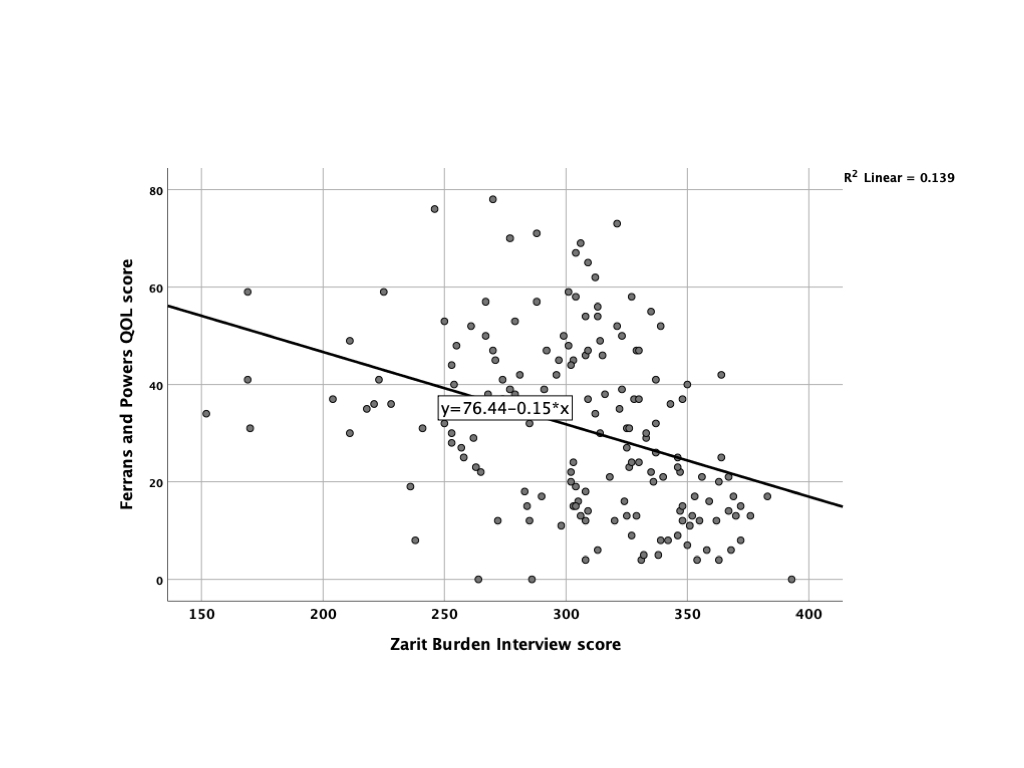P227 High prevalence of mental health illness in IBD patients with high caregiver burden in the developing world: An analysis of risk factors from the IBD Emerging Nations Consortium (IBD-ENC)
Banerjee, R.(1);Pal, P.(1);Hilmi, I.(2);Rahman, M.(3);Aye, T.T.(4);Joshi, N.(5);Ghoshal, U.(6);Alavinejad, P.(7);Peddi, K.(8);Mudigonda, S.(1);
(1)Asian Institute of Gastroenterology, Gastroenterology, Hyderabad, India;(2)University of Malaya, Gastroenterology, Kuala Lumpur, Malaysia;(3)Dhaka Medical College and Hospital, Gastroenterology, Dhaka, Bangladesh;(4)University of Yangon, Gastroenterology, Yangon, Myanmar Burma;(5)Nidan Hospital, Gastroenterology, Kathmandu, Nepal;(6)Sanjay Gandhi Post Graduate Institute of Medical Sciences, Gastroenterology, Lucknow, India;(7)Ahvaz Jundishapur University of Medical Sciences, Gastroenterology, Ahwaz, Iran- Islamic Republic Of;(8)Yashoda Hospitals, Gastroenterology, Hyderabad, India; Inflammatory Bowel Disease Emerging nations Consortium (IBD ENC)
Background
Mental health is an important yet most neglected part of IBD care more so in developing countries.Left unaddressed, psychological factors can portend worse disease outcomes and poor quality of life. Caregiver burden including QOL and coping strategies have not been evaluated.
Methods
The study was conducted under IBD ENC (www.ibdenc.com). Consecutive IBD patients from 8 centers in 6 countries (Nepal, Bangladesh, India, Thailand, Myanmar, Malaysia, Iran) were enrolled after informed consent. For patients, a proforma including demographics, disease severity (Harvey Bradshaw Index: HBI- Crohn’s disease (CD), Simple Clinical Colitis Activity Index: SCCAI- Ulcerative Colitis), Morisky medication adherence scale (MMAS-8), Patient Health Questionnaire 9 (PHQ-9) for depression
Generalised anxiety disorder 7 (GAD7) for anxiety, Short inflammatory bowel disease questionnaire (SIBDQ) for quality of life (QOL) and IBD COPE was used. For caregivers the Zarit Burden Interview (ZBI), the Ferrans & Powers QOL index and Brief COPE survey were analysed.
Results
192 (age 14-79 yrs, median 33, 54% male) IBD patients and 168 (age 18-70, median-45, 41% male) caregivers were recruited. Depression and anxiety were noted in 72% and 67% patients respectively. On multivariate analysis, active disease was associated with increased risk of depression (p <0.001,OR-6.7,95%CI-2.8-16.3); Risk factors for anxiety were higher education (p=0.002, OR-2.17, 95% CI-1.32-3.55), married (p=0.001,OR-6.78, 95% CI- 2.27-20.26), comorbidities (p=0.022, OR- 3.9, 95% CI-1.22-13.12) and active disease (p<0.001, OR-14.2, 95% CI-4.8-41.5). Drug adherence was associated with lower risk of depression (p=0.001,OR-0.59, 95% CI: 0.43-0.87) and anxiety (p=0.002, OR-0.63, 95% CI- 0.47-0.84). Both Depression and anxiety scores (PHQ-9 and GAD-7) correlated negatively with QOL (SIBDQ) (r= —0.653, p<0.001;r=—0.653, p<0.001). but there was no significant association with good or bad coping scores (IBD COPE). Disease activity scores correlated positively with PHQ-9 (r=0.55, p<0.001,CD; r=0.52,p<0.001, UC) and GAD-7 (r=0.47, p<0.001, CD; r=0.36, p=0.001, UC). 



66.7% of caregivers reported high care giver burden (ZBI score≥ 21) which correlated with poor QOL (r=—0.373, p<0.001). Higher occupational status was associated with lower care giver burden (p=0.028,OR-0.88, 95% CI-0.79-0.99). Positive reframing and self distraction were the most common adaptive and maladaptive coping strategies.
Conclusion
Depression and anxiety is highly prevalent in IBD patients in developing countries with high caregiver burden. Clinicians need to make assessment of psychiatric comorbidity in IBD patients a priority.


